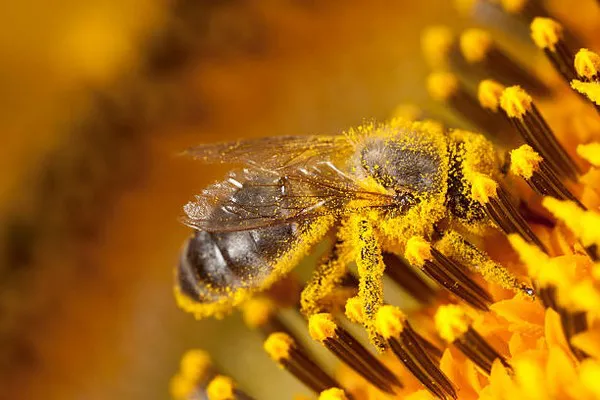Pollen allergy, also known as hay fever or allergic rhinitis, affects millions of people worldwide, causing symptoms such as sneezing, nasal congestion, itching, and watery eyes. In this comprehensive guide, we explore effective strategies for protecting yourself from pollen allergy, including reducing exposure to pollen, managing allergy symptoms, and making lifestyle changes to minimize the impact of allergies on your daily life.
Reducing Exposure to Pollen: Shielding Yourself from Nature’s Intruder
Harnessing Knowledge to Mitigate Allergen Exposure
Reducing exposure to pollen is key to managing pollen allergy effectively. Here are some strategies to shield yourself from nature’s intruder:
Monitoring Pollen Counts: Stay informed about pollen levels in your local area by using pollen count trackers available online or through weather apps. Plan outdoor activities accordingly, opting for indoor activities on days when pollen counts are high.
Staying Indoors During Peak Pollen Times: Limit outdoor exposure during peak pollen times, which typically occur in the morning and on windy days when pollen is more likely to be airborne. If possible, schedule outdoor activities for late afternoon or evening when pollen levels are lower.
Creating a Pollen-Free Zone at Home: Minimize pollen exposure at home by keeping windows and doors closed during peak pollen seasons, using air purifiers equipped with HEPA filters to trap airborne pollen particles, and showering and changing clothes after spending time outdoors to remove pollen residue.
Protecting Yourself Outdoors: When venturing outdoors during high pollen count days, consider wearing sunglasses to shield your eyes from pollen and a mask to filter out airborne allergens. Wearing a hat with a wide brim can also help prevent pollen from settling on your hair and face.
Managing Allergy Symptoms: Alleviating Discomfort with Effective Solutions
Managing allergy symptoms is essential for maintaining comfort and quality of life. Here are some strategies to alleviate pollen allergy symptoms:
Over-the-Counter Medication Options: Explore over-the-counter allergy medications such as antihistamines, decongestants, and nasal sprays. Antihistamines work by blocking histamine, a chemical released during allergic reactions, while decongestants help relieve nasal congestion. Nasal sprays containing corticosteroids reduce inflammation in the nasal passages, providing long-lasting relief from allergy symptoms.
Natural Remedies: Consider alternative remedies for pollen allergy relief, such as saline nasal rinses, neti pots, and acupuncture. Saline nasal rinses help flush out allergens and irritants from the nasal passages, reducing congestion and inflammation. Neti pots, when used with sterile saline solution, can provide similar benefits by irrigating the nasal passages and sinuses. Acupuncture, a traditional Chinese medicine practice, may help alleviate allergy symptoms by promoting balance and harmony within the body’s energy channels.
Immunotherapy: Explore immunotherapy options such as allergy shots or sublingual tablets for long-term allergy relief. Immunotherapy involves gradually exposing the body to increasing doses of allergens to desensitize the immune system and reduce allergic reactions over time. Allergy shots are administered by a healthcare professional and are typically given over a period of several months to years. Sublingual tablets, which are dissolved under the tongue, offer a convenient at-home alternative to allergy shots for some individuals.
Lifestyle Changes: Embracing Holistic Approaches to Allergy Management
In addition to medical interventions, making lifestyle changes can help manage pollen allergy and improve overall well-being:
Diet and Exercise: Maintain a healthy diet rich in fruits, vegetables, lean proteins, and whole grains to support your immune system and reduce inflammation. Regular exercise can also boost your immune function and help alleviate allergy symptoms. However, be mindful of outdoor exercise during high pollen count days and opt for indoor activities when pollen levels are elevated.
Stress Management: Stress can exacerbate allergy symptoms by weakening the immune system and increasing inflammation. Practice stress management techniques such as deep breathing, meditation, yoga, or tai chi to promote relaxation and reduce anxiety. Prioritize self-care activities that bring you joy and peace of mind, such as spending time outdoors in pollen-free environments, engaging in hobbies, or connecting with loved ones.
By implementing these strategies, individuals with pollen allergy can minimize exposure to allergens, alleviate symptoms, and enhance their quality of life. It’s essential to work closely with healthcare professionals to develop a personalized allergy management plan tailored to your specific needs and preferences. With proactive measures and effective interventions, you can navigate pollen allergy season with confidence and comfort.
[inline_related_posts title=”You Might Be Interested In” title_align=”left” style=”list” number=”6″ align=”none” ids=”6841,6838,6835″ by=”categories” orderby=”rand” order=”DESC” hide_thumb=”no” thumb_right=”no” views=”no” date=”yes” grid_columns=”2″ post_type=”” tax=””]

































